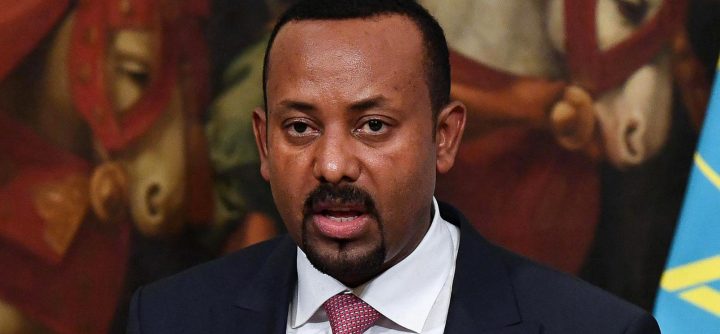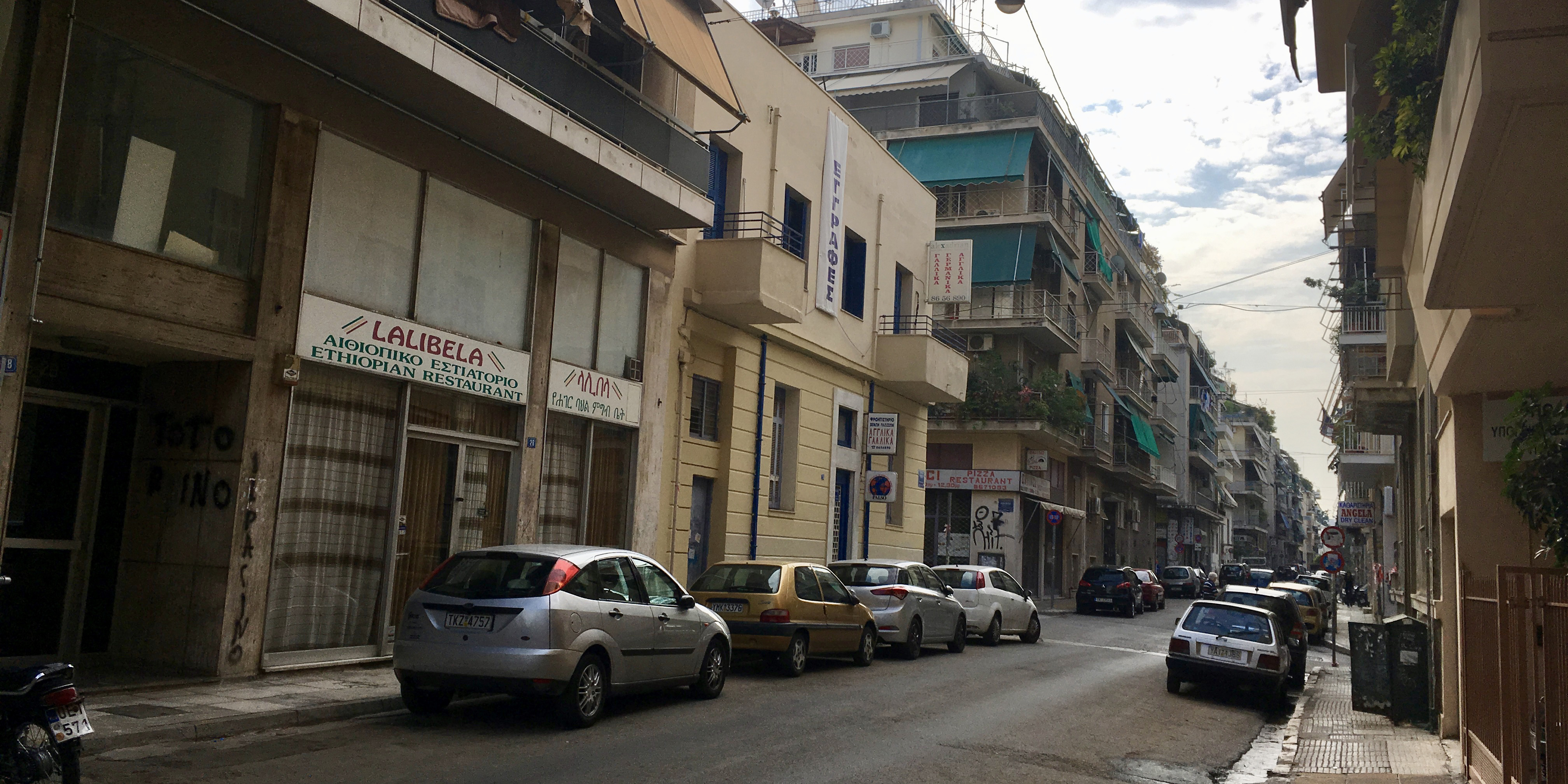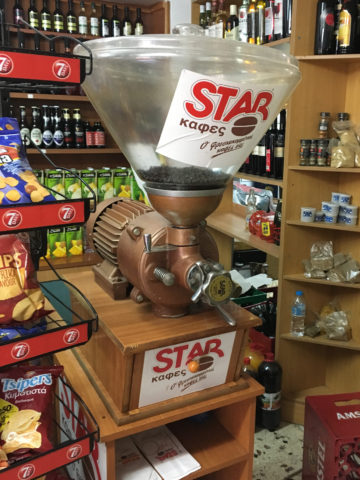AFRICAN DIASPORA
Ethiopians in Greece buoyed by PM’s Nobel Prize

Ethiopians living in Greece celebrated the awarding of the Nobel Peace Prize to Prime Minister Abiy Ahmed with their fellow countrymen back home, but many say much remains to be done before Ethiopia can thrive.
Fikerer Tefera’s shop in Athens’ eclectic Kypseli neighbourhood – where many African immigrants settle – sells all sorts of Ethiopian delicacies. Next to the counter is a large container with aromatic, roasted coffee beans from which the restaurant next door makes coffee that takes you straight to the motherland. Even if you buy nothing, Tefera will gladly help with change for your euro notes, or a plastic bag for the loaf of bread you’re carrying if the brown paper wrapping isn’t holding. In the evenings, more so on weekends, Ethiopians who live in the city hang out next door. There’s a sense of community here.
Tefera, who is from the capital, Addis Ababa, settled in Athens 24 years ago after her paperwork for Italy – where she wanted to go to in the first place – didn’t work out. Over the years she built up a business, but, like many here in Greece, she lost her shop during the country’s economic crisis in 2015.

Lalibela, one of the most famous Ethiopian restaurants in Athens, in the Kypseli neighbourhood. (Photo: Carien du Plessis)

Next to the counter in Fikerer Tefera’s shop is a large container with aromatic, roasted coffee beans. (Photo: Carien du Plessis)
“I couldn’t make a profit then,” she says, so she had to do other things. “Sometimes I worked in a madam’s place, that’s how I got money.”
Things are looking up again and two years ago she established this new shop, which sells groceries, artefacts and clothes from Ethiopia.
She goes back to the country regularly and follows developments keenly. In October she learned about Ethiopian Prime Minister Abiy Ahmed’s Nobel Peace Prize on YouTube.
“I’m like, how to explain, it’s like he’s my hero,” she says about the award. “I’m very happy for him, for my country too.” Asked whether she would try to go back to Ethiopia to vote in next year’s elections, due in May, she says she will.
The Ethiopian community in Athens is only about 2,000 strong since few Ethiopians leave home with the aim of settling in Greece, says Assefa Debele, a mechanical engineer and community organiser who has lived in Greece for the past three decades. Greece is considered to be a transit country. It’s the nearest European Union entry port to Turkey, where most Africans can travel visa-free, so many pass through here.
“Because of living conditions in Greece, no secure job, not enough access to education, not enough future for them and their family members, they prefer to leave Greece. But there are some few [Ethiopian] people who have chosen to live in Greece, especially those who came here before the ’90s,” Debele says. Most Ethiopians who leave their country nowadays do so for economic reasons.
Debele, too, was happy to hear about Abiy’s prize, a feeling he says he shared with other Ethiopians in Athens.
“He is our beloved president, for most of us, and I do believe he deserves it. He preaches peace and love, and gave freedom, and we are on our way for the first democratic elections next year. But there is still a lot to do, a lot of unrest in different parts of Ethiopia because of ethnic-based politics.”
More than 70 people died recently in Ethiopia’s Oromia region when political protests turned into clashes between ethnic and religious groups.
Some Ethiopians remain in Greece as they try to find ways to move on to other European countries. A woman in her 20s who doesn’t want to give her name, says she and a friend, whom she met during her time in a transit camp on the Greek island of Lesvos, are still in Greece waiting for an opportunity to travel further into Europe to find a place to settle. While she says Abiy’s leadership is good, she doesn’t want to go back to Ethiopia now, because it took her a long time and a lot of effort to get this far.
“I don’t have a job here in Athens, but I’m looking for a job to make some money,” she says. “It’s not easy.”
She was in the transit camp for more than a year while waiting for her documents to be sorted, and she says it was “bad”. The Moria camp on Lesvos has long been crowded, but a recent wave of new arrivals from Syria saw numbers soar to almost 17,000 people – in a place with capacity for 3,000. The Council of Europe Commissioner for Human Rights, Dunja Mijatovic, last week called for urgent measures to address the “desperate conditions” which see people “queue for hours to get food and go to bathrooms, when these are available”.
While human rights organisations have criticised conditions there, the Greek government under centre-right Greek Prime Minister Kyriakos Mitsotakis is taking a more hardline stance, vowing to fast-track deportations for those who are not genuine asylum-seekers.
It’s hard to say whether Abiy’s appointment in March 2018 has changed the minds of Ethiopians wanting to come to Europe in search of work opportunities. Anecdotal evidence from people working with refugees and migrants in Athens is that the number has been declining from last year, and the International Organisation for Migration (IOM) has reported that more have opted to return home in this time.
The IOM said in a statement on 29 October 2019 that the number of Ethiopians returning home since January was 9,200, a twofold increase compared with 2018, when 5,382 were assisted to return home.
“Many migrants who undertake the dangerous journey fall into highly vulnerable situations that require various forms of support. These include financial help, immediate post-arrival assistance with shelter and medical screening, as well as specialised support like family tracing and reunification services for unaccompanied children,” the IOM said.
When they return to Ethiopia, many arrive home to the same or worse economic conditions that prompted them to leave in the first place or find themselves out of pocket or in debt after paying for their trip.
“Most of them have exhausted their own as well as their family’s savings and need to rebuild their lives,” the IOM said.
Those who leave Ethiopia for a better life are still far fewer than those moving within. An IOM report based on July figures showed more than a million Ethiopians were internally displaced because of conflict, while about 600,000 moved due to droughts or seasonal flooding.
In Athens, Tefera is somewhat anxious about the 2020 elections and Abiy’s chances of winning.
“I don’t know. In Addis Ababa, they say they don’t want him. They liked him before, now they don’t like [him],” she says.
She hopes the Nobel Prize will change people’s minds to at least buy into his vision of unity for the country, which has seen a lot of infrastructure development in the past few years.
“My country, it changed, like [there are] more buildings, but the people have not changed their mind, that is the problem.” DM

















 Become an Insider
Become an Insider